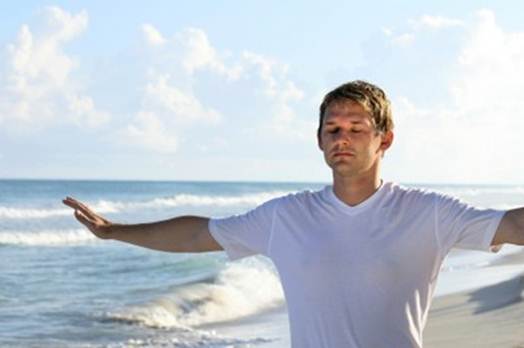“What I do is pray; how I pray is breathe.”
Breathing is a curious, seemingly miraculous phenomenon.
It is the most basic of our voluntary behaviors and yet, as long as we are
healthy, it doesn’t require any volition at all.

A dear friend of mine recently succumbed to
emphysema. Before he became ill, he’d been a scholar and a poet and a social
activist. He’d had a passion for beauty in all its myriad forms. His life had
been rich with rare experiences and fascinating people, and the whole of the
world had been his home. But in his last few years, shortness of breath and a
nasal oxygen tube had tethered him to an ever-shrinking sphere of existence –
first to his apartment, then to his chair, and finally to his bed. The simplest
of activities exhausted him. On bad days, he’d require hours to recover from a
simple trip to a bathroom. When he’d try to speak, he’d lose his breath, so the
only visitors he’d receive were his daughters and his hospice nurses. I’d write
to him on Facebook and, when he had the energy, he’d respond. In one of our
last communications, I asked him how he found the strength each day to carry
on. He replied, “I pray with every breath.”

Breathing
is a curious, seemingly miraculous phenomenon.
Since my friend’s passing, I’ve wondered
what he meant when he wrote that lovely sentence. For me, he was a holy man,
but as far as I knew, he had never expressed a faith in a personal god. It
could be that ha had suddenly found religion (as some people do on their
deathbeds), but that seems to me unlikely. Perhaps he had taken to silently
reciting one of the “breathing prayers” (the Celtic anal-duccaid, the yogic
satyam, or the Christian Jesus prayer) as his first and final act of faith.
I’ll never know precisely what he had meant to convey with those words, but
what I’ve come to understand is that, for him, each breath had become a
spiritual experience.

For
me, he was a holy man, but as far as I knew, he had never expressed a faith in
a personal god.
Breathing is a curious, seemingly
miraculous phenomenon. It is the most basic of our voluntary behaviors and yet,
as long as we are healthy, it doesn’t require any volition at all. And if our
“thinking mind” can be prompted to vigilantly shadow our breath, our self – the
volitional point person in our brain – begins to fade away until only pure
awareness remains. Given its power to effect such a transformation, it’s not
surprising that practitioners of both Eastern and Western meditative traditions
conceptualize the breath as sacred. But breathing is also a physical baptism.

It
is the most basic of our voluntary behaviors and yet, as long as we are
healthy, it doesn’t require any volition at all.
Although we rarely stop to think about it,
we are cleansing and revitalizing ourselves with each and every breath we take.
Our bodies are designed to expel an impressive 70 percent of their toxic load
via respiration. This cleansing process begins at the cellular level. As our
cells convert sugars into a simple form of usable energy, carbon dioxide is
generated as waste. This toxin gas is then absorbed into our bloodstream,
transported to our lungs, and released into the atmosphere, when we exhale.
Then the plants, with which we share the planet, take in our expelled carbon
dioxide and use it to create the energy that fuels their existence. And,
fortunately for us, they then release the waste product of this photosynthetic
process into the atmosphere – the oxygen that sustains our own existence. In
this unparalleled display of the elegance of co-evolutionary design, the plants
and animals of the earth are cleansing and nourishing and renewing each other,
every moment of their lives – a quintessentially physical phenomenon that
displays all of the hallmarks we usually ascribe to acts of divine grace a
spiritual love.

Although
we rarely stop to think about it, we are cleansing and revitalizing ourselves
with each and every breath we take.
It’s twilight now, the time of day when my
friend would sometimes leave me a poem or a few kind words on Facebook, and I’d
respond with gratitude and a sentiment aimed at soothing his discomfort and
loneliness. I miss him very much, and, for better or worse, I’m unable to
comfort myself with the notion that we’ll someday meet in heaven. But I can
remember him and all that I loved about him. I can recall the ease with which
we communicated and made each other smile. I can reflect upon the simple gifts
of attention and appreciation and companionship that we gave each other freely
and that meant so much to us both. And as I lie in bed at night, waiting for
sleep to overtake me, I can breathe a prayer of gratitude for the blessing of
his friendship and the promise of my next breath.